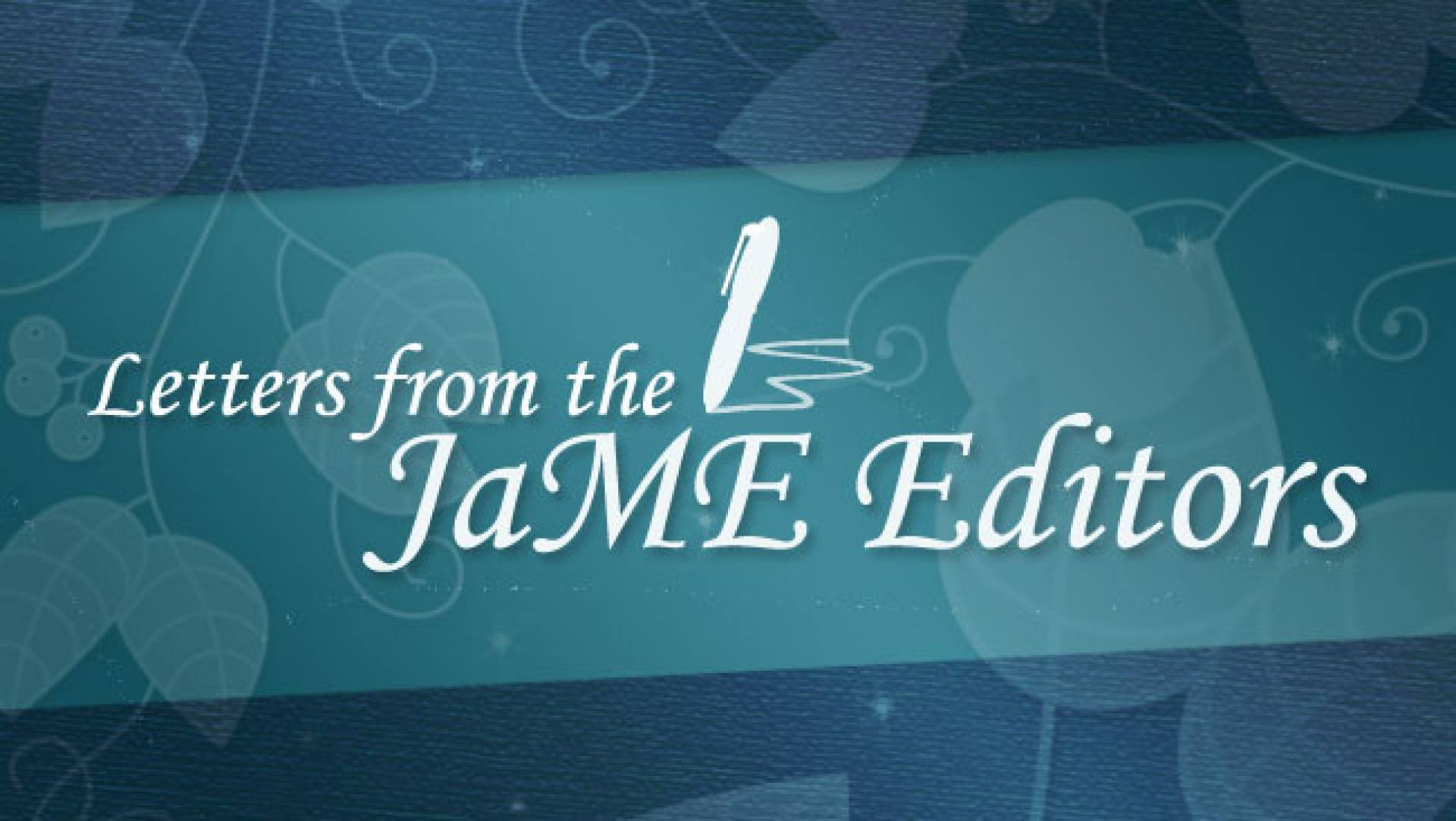The fourth installment of the "Letters from the JaME Editors" comes from jessieface.
Hi, JaME readers! Welcome to the September edition of "Letters from the JaME Editors". I’m jessieface a.k.a Jess Carlson and currently live in the US. I grew up in Australia, living there for over eleven years, and was surrounded by a large Asian community. About four years ago, I returned to the US. Growing up in such diverse neighbourhoods across two parts of the globe drove me to become passionate about languages. This same passion extends to my tastes in music: my iTunes library is an assortment of languages ranging from French or Arabic pop, Korean visual kei (yes, it exists!), some folk music and of course, Japanese music covering a myriad of genres.
I first started listening to Japanese music around 2004 or 2005. My initial love was of course through visual kei, with The GazettE, An Cafe and Alice Nine. At that time, I was attracted to how different the music sounded from pop and rock. I was also (yes, I admit it) attracted to members' appearances as bands overseas don’t focus too heavily on appearances that tie with the music. That contrast really drove me to enjoy Japanese music further.
Early on, I kept my music completely in Japanese characters—no romaji! When I purchase music from iTunes or a physical CD, and import it onto my laptop, I like to rename any romaji track titles to original Japanese titles. For example, after purchasing girugamesh's Owari no mirai, I put it into its original script so I would associate it as a non-Latin script. This helped me to remember both 'owari' and 'mirai'. Even before formally studying Japanese, I had trained myself to recognize song titles and band names in kanji and kana. So when I started formally studying Japanese in a classroom about five years later, I was miles ahead. For readers who are studying or are planning to study Japanese (or any language!) and are music junkies, I recommend that you rename your files with the actual script and use it for study practice! Then when you formally begin to study say, kanji and can recognize the ‘kyuu’ in Alice Nine’s name or rather proudly read Kiryuu without much prompt, that is a great beginning towards learning kanji. Trust me, it helps.
About two years ago, I got into the Japanese rock and indie scene. It started when on a YouTube tangent (where you search for a video and click on the related videos on the side bar for similar videos. This can last for minutes or hours) sometime in 2008, I came across the song Ameotaku by RADWIMPS. Initially, I was drawn in by the odd band name and the wacky cover art of a robot composed of an array of geometric shapes and pieces. Ameotaku is sung in English, and foreign groups who sing in English are rather amazing. I appreciate the lengths non-English speakers go to learn, speak and sing in English and let emotions expressed in the singer’s mother tongue be reflected when singing in English. Today I still listen to RADWIMPS, and I’d have to say my current favourite track is Oshakashama. The intro sounds like a crazy mess of static and the lyrics have a rather philosophical tone to them by questioning why certain things happen, foolish thoughts and a little bit about religion.
As for the Korean visual kei I mentioned earlier, it definitely exists! Under the thick Hallyu wave idol groups lies a visual kei inspired group, Ghost. Look them up. They incorporate much of the same techniques as Japanese visual kei does. It's rather surprising, actually.
Among many artists, another favourite is a one-man doujin artist, DECO*27. I’m not too ‘into’ all the Touhou inspired remakes seen in other doujin circles but I enjoy original compositions. Among DECO*27’s works are a mix of bright, fun songs and some dark, rock anthems. Although some songs like Ai kotoba and Aimai Elegy rely on vocals from a living human, most DECO*27 compositions use Vocaloid software, a computer program that replicates the human voice. My favourite DECO*27 track is the rather catchy Yowamushi Mont Blanc feat. marina that seems to stick in your head for hours.
So readers, don’t be afraid to go out and explore beyond your comfort zone, and try out other genres!
Also we’d like to know, how do you tag your Japanese music? Are you a stickler for kanji/kana, or do you settle for romaji?













